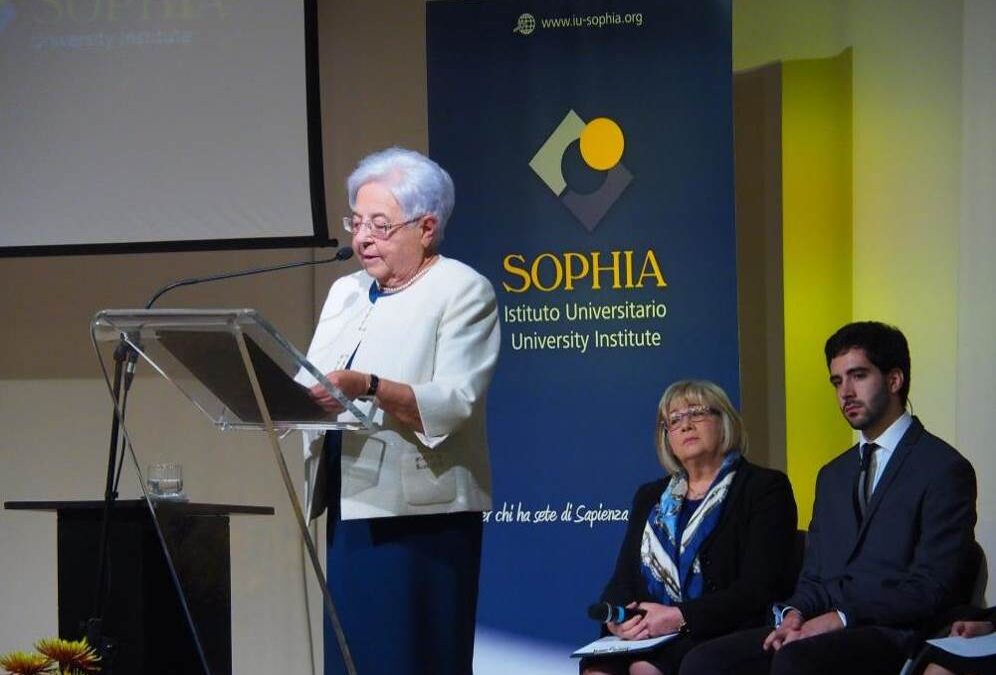
Oct 27, 2017 | Non categorizzato
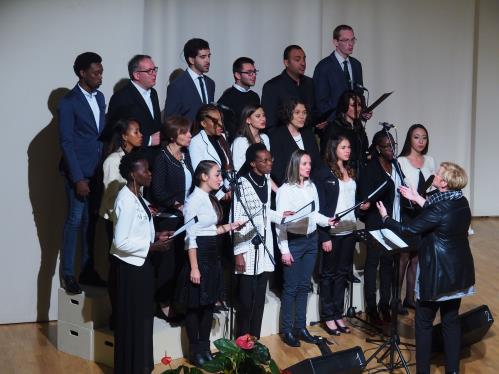 As processes of isolation increase around the world, Sophia University Institute opens a courageous new Centre for Global Studies which will “provide tools for understanding, managing and changing processes of global relations,” explained Pasquale Ferrara, Italian Ambassador to Algeria and president of the new Centre. “The new centre is the result of ten years of academic experience, and its goal is the training of a new generation of leaders that is capable of facing the complexity, and motivated to work for dialogue and peace.” “No country, no group can allow itself to become isolated from the other,” said Paolo Frizzi, professor of Religions and Global Processes, and Director of the Centre. “We are in the middle of an uncertain passage, which is transient and happening on many levels.
As processes of isolation increase around the world, Sophia University Institute opens a courageous new Centre for Global Studies which will “provide tools for understanding, managing and changing processes of global relations,” explained Pasquale Ferrara, Italian Ambassador to Algeria and president of the new Centre. “The new centre is the result of ten years of academic experience, and its goal is the training of a new generation of leaders that is capable of facing the complexity, and motivated to work for dialogue and peace.” “No country, no group can allow itself to become isolated from the other,” said Paolo Frizzi, professor of Religions and Global Processes, and Director of the Centre. “We are in the middle of an uncertain passage, which is transient and happening on many levels. 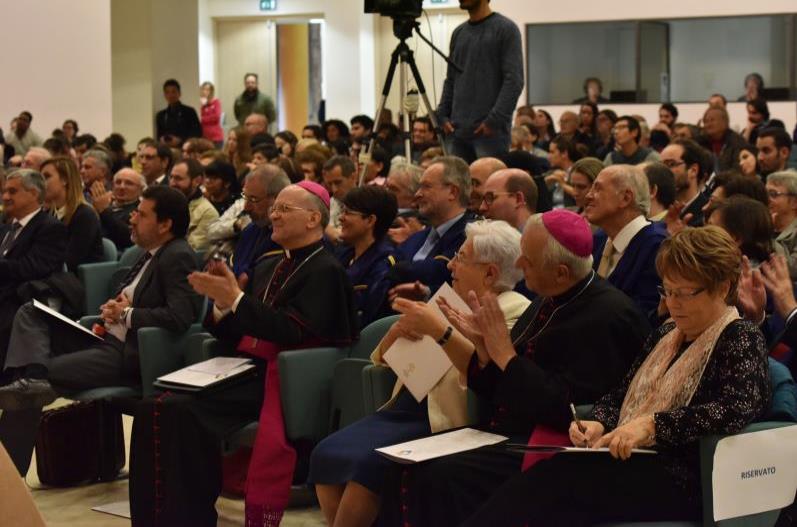 Sophia Institute, the result of Chiara Lubich’s intuition, has tripled its offerings this year: Master Degree in Economics and Management, Trinitarian Ontology and Culture of Unity, with their respective doctorates. President Msgr Piero Coda explains: “The complex nature of the national and global horizon requires a relentless effort oriented towards the unity of the human family guided by a new thought. In these ten years, Sophia has grown into an Intercultural, inter and trans-disciplinary centre where an integral relationship is nurtured among study, experience and research.”
Sophia Institute, the result of Chiara Lubich’s intuition, has tripled its offerings this year: Master Degree in Economics and Management, Trinitarian Ontology and Culture of Unity, with their respective doctorates. President Msgr Piero Coda explains: “The complex nature of the national and global horizon requires a relentless effort oriented towards the unity of the human family guided by a new thought. In these ten years, Sophia has grown into an Intercultural, inter and trans-disciplinary centre where an integral relationship is nurtured among study, experience and research.”
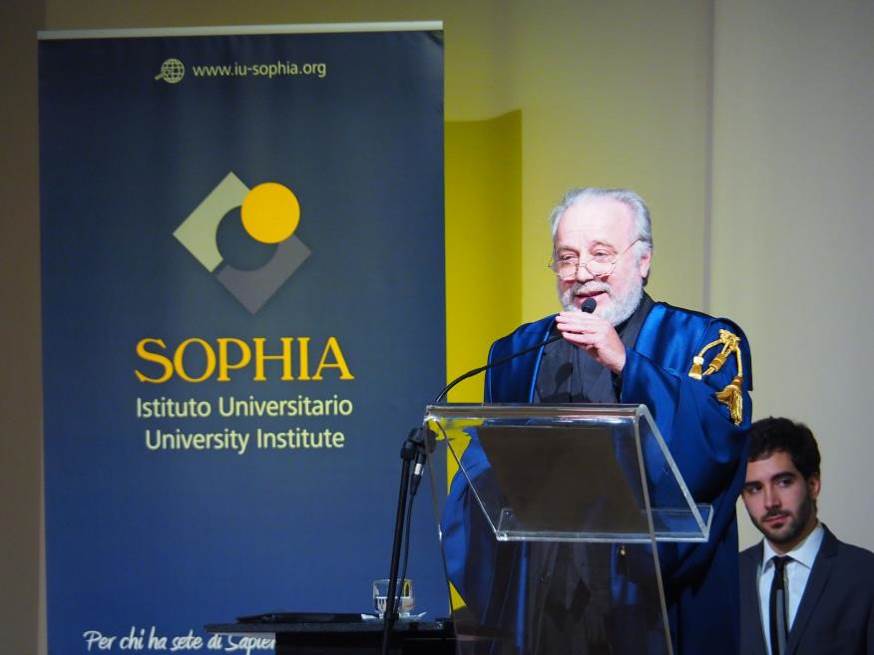
Msgr Piero Coda
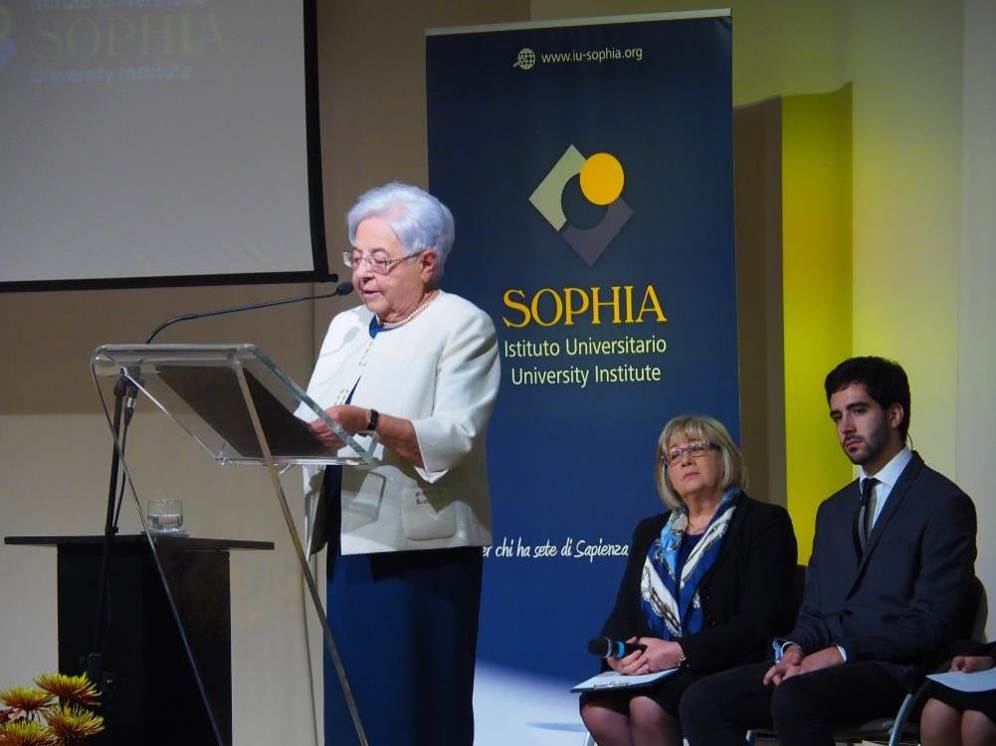
Maria Voce
Oct 26, 2017 | Non categorizzato
Together for Europe (TfE) is an initiative of over 300 Christian Movements and Communities belonging to different Churches in Europe. The Steering Committee which is entrusted with a coordination role is composed of the following members: Christophe D’Aloisio (Fraternité orthodoxe en Europe occidentale), Marco Impagliazzo (Community of Sant’Egidio), Michelle Moran (ICCRS / Sion Community), Gerhard Pross (CVJM/YMCA Esslingen), Thomas Roemer (CVJM/YMCA Munich), Gérard Testard (Efesia), Maria Voce (Focolare Movement) and Fr. Heinrich Walter (Schoenstatt). In 2017, the “Friends” of TfE network will hold their annual conference in Vienna, a city that is a bridge connecting Eastern and Western Europe. A total of 120 participants from around 20 Eastern and Western European countries and 40 Movements are expected to attend. Their main aim will be to pool ideas on three topics:
- What culture is generated by the history of Together for Europe?
- What is our specific contribution to Europe?
- Dialogue between East and West: a mutual enrichment
This network of people embraces all of Europe from England to Russia, from Portugal to Greece. Their shared mission: through the upcoming meeting, to strengthen communion among their individual charisms and build united and multifaceted Europe, with strong social cohesion and cultural diversity. The meeting will open, on 9th November 2017, in the Stephansdom Cathedral of Vienna, with an Ecumenical prayer for Europe. All those who wish for peace in Europe and in the world, are invited to take part in this moment of prayer. Cardinal Christoph Schoenborn, Archbishop of Vienna, Auxiliary Bishop Emeritus Helmuth Kraetzl, Catholic Church, Archpriest Vicar Ivan Petkin, Bulgarian Orthodox Church in Austria, Chorbishop Emanuel Aydin, Syrian Orthodox Church in Austria, Patriarchal Delegate Tiran Petrosyan, Armenian Apostolic Church, Patrick Curran, Archdeacon of the Eastern Archdeaconry of the Anglican Church in Europe, together with all the present will bring before God needs and opportunities of our continent. The intention of the prayer is extremely timely: unity in diversity, peace in justice. Following personalities will address the gathering: Thomas Hennefeld, Superintendent of the Reformed Church of Austria and President of the Ecumenical Council of Churches in Austria, and Joerg Wojahn, Head of the European Commission Representation in Austria. For further information on Together for Europe
Oct 26, 2017 | Non categorizzato
A group of young Columbian architects of the “De La Salle” University of Bogotà and Italians of “G. D’Annunzio” University of Pescara are undertaking a new stage of the traveling workshop, “Habitandando,” organized by the network of the Focolare Movement Dialogue in Architecture. From 24 to 28 October there will be a trip from Bogotà into the interior of the country, with stopovers in some colonial towns and the Amazon plains. From 30 October to 5 November a week of study-work will follow in the Altos de Cazuca district in the outskirts of Bogotà. This is a depressed area, lacking in primary infrastructure and renowned also for security-related problems. The objective is to design and experiment through creative projects and teamwork, architectonic and urban solutions aimed at generating change and creating spaces for the local community. This will be an extreme context at the limit of the resources, technological possibilities, and social and cultural environmental sustainability.
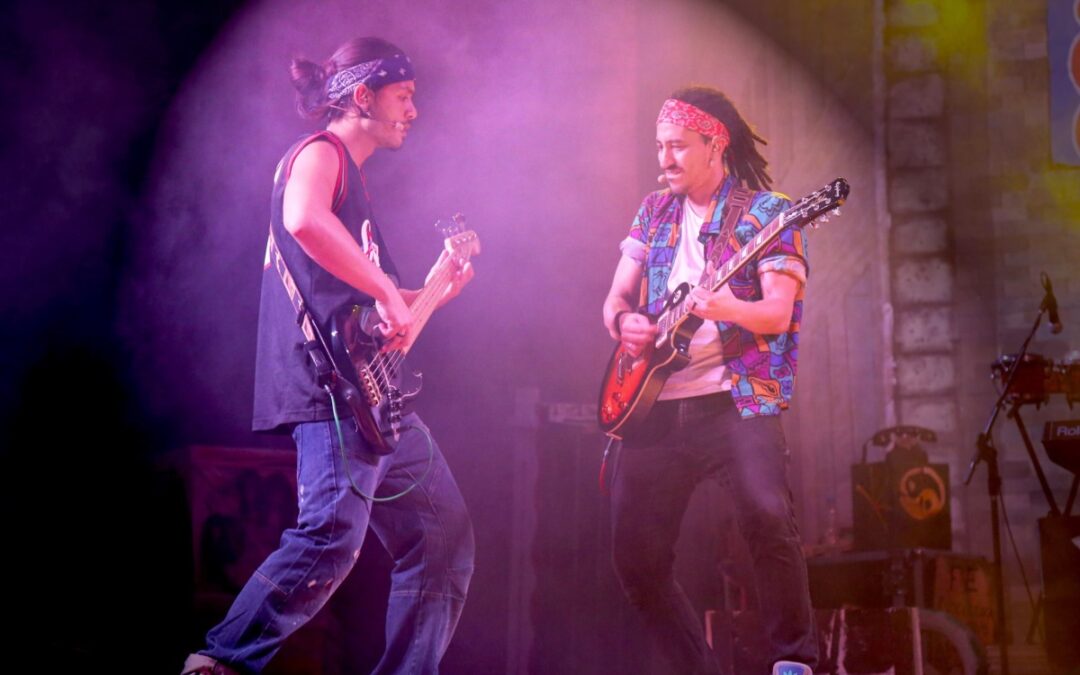
Oct 25, 2017 | Non categorizzato
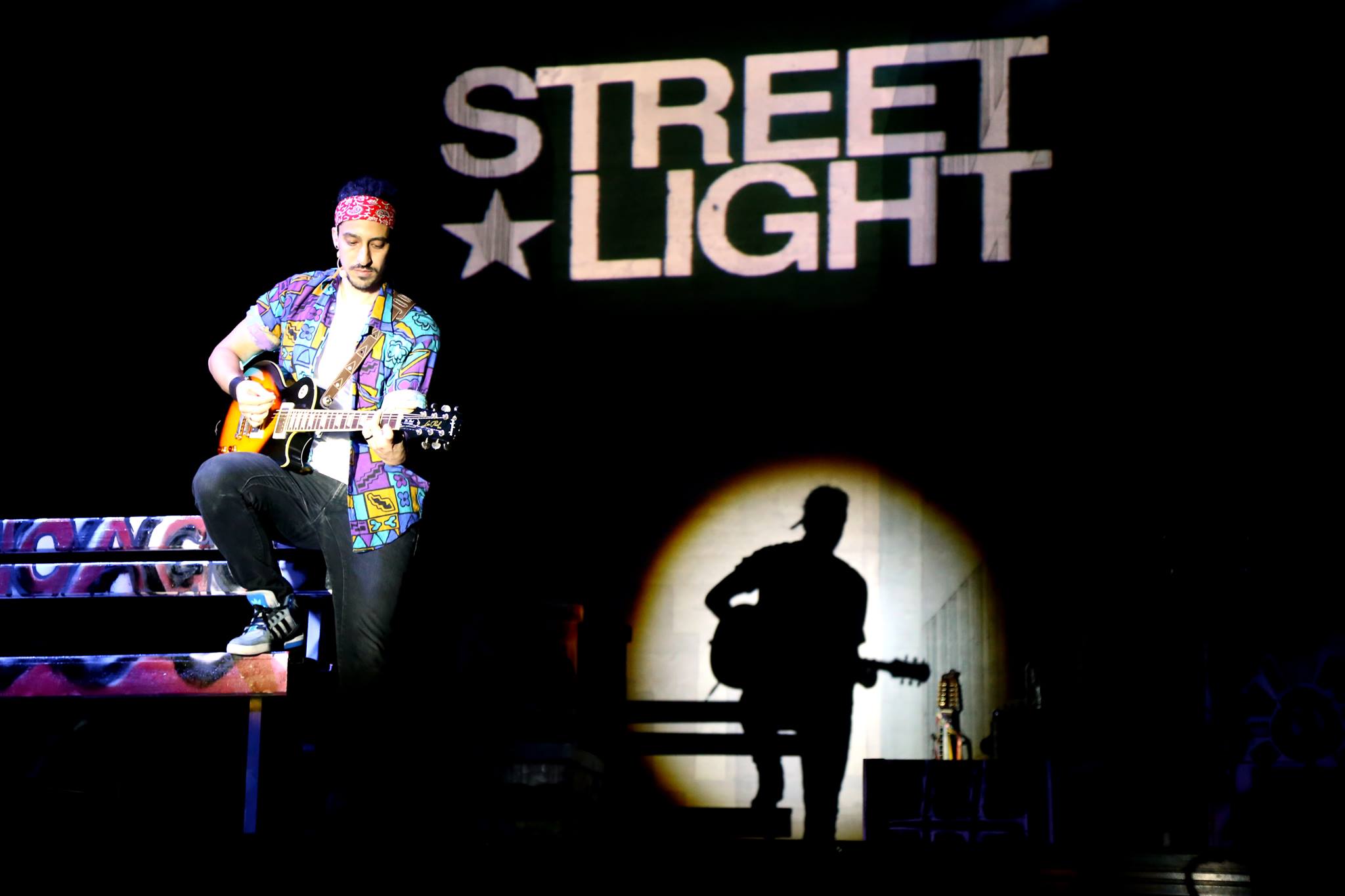 Organized by the Fazenda da Esperança, the Gen Rosso band’s Brazilian tour “Every life has a hope” is now underway. After a first stopover in the State of Santa Caterina, the tour will move on to the Central and Northern regions of the country. Joinville, ten hours by coach from Sao Paolo, is a modern city and a reference point for all dance enthusiasts, and not only the South Americans. Apart from Moscow, it is the only one that hosts a school of the Bolshoi Theater, where the old Russian method is taught. In the city of dance, from last 24 September to 1 October, nine Bolshoi ballet dancers and four others of the Cultural Centre contributed in setting up a musical. Streetlight is an original project that was staged with over 200 youths with drug addiction problems. In three days of intense work, they learnt and practiced dance steps and music, side by side with artists and youngsters, inspired by the motto one for the other. At the end, the curtain rose and the show was staged. It was not a job performed “for” the youth, but “with” the youth, said Globo TV – the most popular TV channel in Brazil – which dedicated several spots and interviews to the programme. A workshop dedicated to the educators and social workers working in the city, was held simultaneously on themes regarding the psychological, social and family processes connected to the rehab from the various types of addictions.
Organized by the Fazenda da Esperança, the Gen Rosso band’s Brazilian tour “Every life has a hope” is now underway. After a first stopover in the State of Santa Caterina, the tour will move on to the Central and Northern regions of the country. Joinville, ten hours by coach from Sao Paolo, is a modern city and a reference point for all dance enthusiasts, and not only the South Americans. Apart from Moscow, it is the only one that hosts a school of the Bolshoi Theater, where the old Russian method is taught. In the city of dance, from last 24 September to 1 October, nine Bolshoi ballet dancers and four others of the Cultural Centre contributed in setting up a musical. Streetlight is an original project that was staged with over 200 youths with drug addiction problems. In three days of intense work, they learnt and practiced dance steps and music, side by side with artists and youngsters, inspired by the motto one for the other. At the end, the curtain rose and the show was staged. It was not a job performed “for” the youth, but “with” the youth, said Globo TV – the most popular TV channel in Brazil – which dedicated several spots and interviews to the programme. A workshop dedicated to the educators and social workers working in the city, was held simultaneously on themes regarding the psychological, social and family processes connected to the rehab from the various types of addictions. 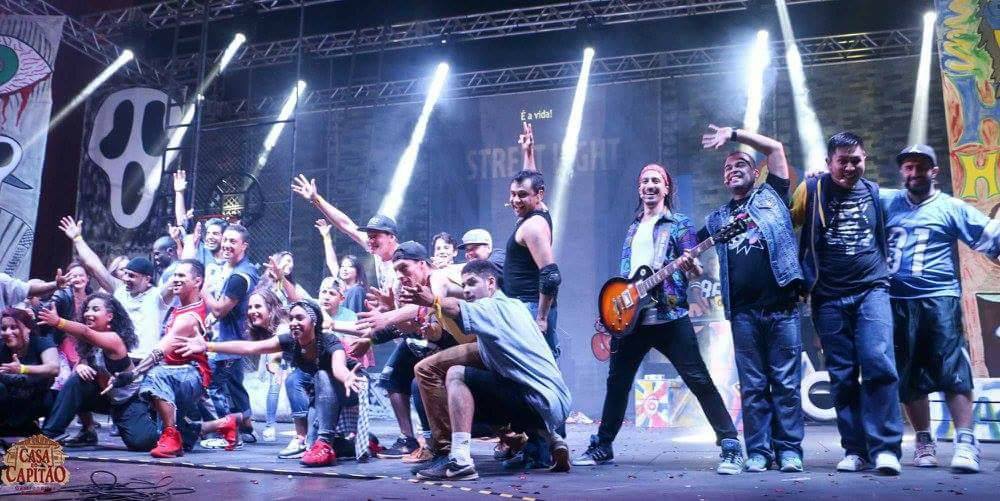 Fr. Luiz, current president of the Fazenda together with Angelucia, Nelson and Iracì, some of the pioneers of the “factory” of hope, which has spread from Brazil to Latin America, the Philippines, Africa, Russia and Central Europe, worked side by side with Gen Rosso, which for that occasion expanded its team, involving also other members of the local Focolare community. Enthusiasm among the youths involved onstage was sky-high. “It is really worthwhile to try and overcome one’s limits. I thank the Fazenda for giving us this opportunity to work with Gen Rosso”.
Fr. Luiz, current president of the Fazenda together with Angelucia, Nelson and Iracì, some of the pioneers of the “factory” of hope, which has spread from Brazil to Latin America, the Philippines, Africa, Russia and Central Europe, worked side by side with Gen Rosso, which for that occasion expanded its team, involving also other members of the local Focolare community. Enthusiasm among the youths involved onstage was sky-high. “It is really worthwhile to try and overcome one’s limits. I thank the Fazenda for giving us this opportunity to work with Gen Rosso”. 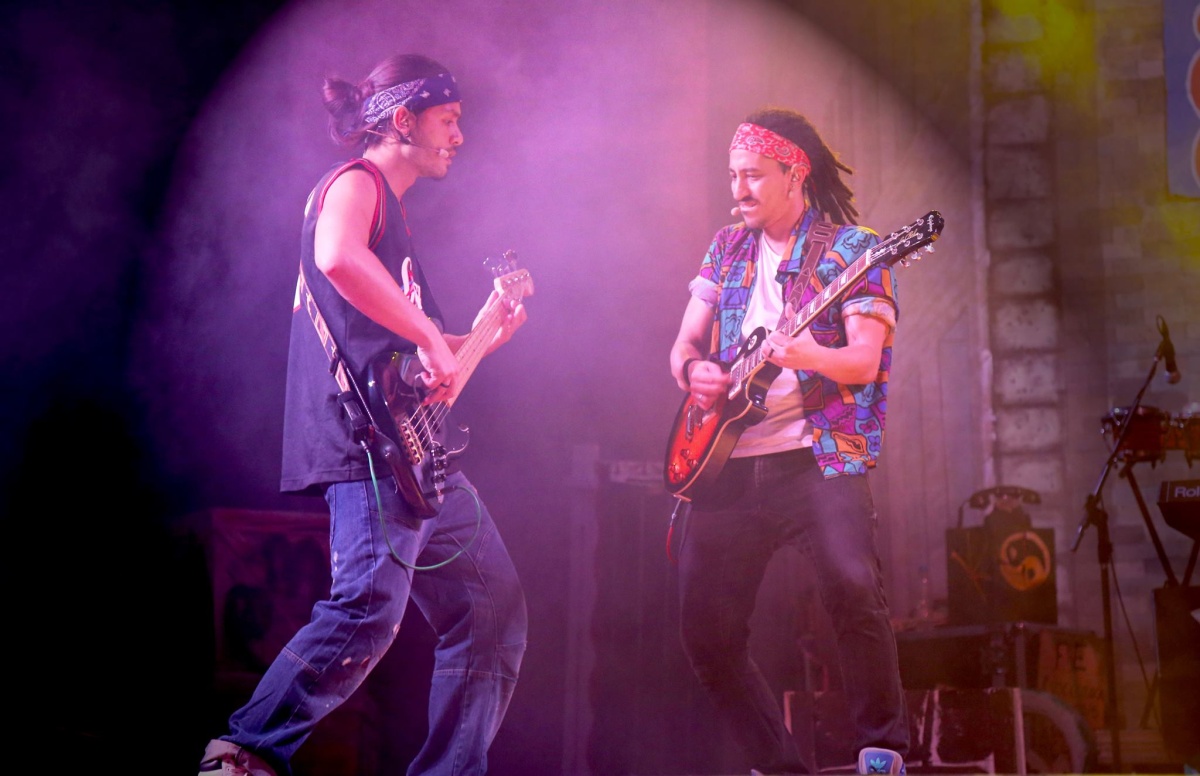 So taken by the music and the rhythm, a boy who in the past headed a violent gang, said: “The adrenalin I had experienced while doing bad things, was for me, the utmost. But I saw that one can be even happier in doing good, without drugs and alcohol. This is something new for me.” William, of the Bolshoi school: “I learned that one can dance not only with technique and discipline but also with one’s heart. It was a joyous and likewise harmonious experience expressed also with a smile.” A ballerina of the Cultural Centre said: ”Our professionalism encountered the force of a lifestyle of many youths: a surprise for me and a miracle of art for one another.” Also the public expressed surprise and enthusiasm: “I saw my city get involved.” “It is art that becomes service to society.” “You have strengthened unity among the various civil communities; a very precious experience which we must pursue in the future.” Meanwhile, after the concert in every city of the tour, the group continued the work to ensure that connections between the various social institutions engaged in the education and rehabilitation from drugs and other addictions, were consolidated and strengthened, so as not to allow the streetlights to dim. Streetlight Video.
So taken by the music and the rhythm, a boy who in the past headed a violent gang, said: “The adrenalin I had experienced while doing bad things, was for me, the utmost. But I saw that one can be even happier in doing good, without drugs and alcohol. This is something new for me.” William, of the Bolshoi school: “I learned that one can dance not only with technique and discipline but also with one’s heart. It was a joyous and likewise harmonious experience expressed also with a smile.” A ballerina of the Cultural Centre said: ”Our professionalism encountered the force of a lifestyle of many youths: a surprise for me and a miracle of art for one another.” Also the public expressed surprise and enthusiasm: “I saw my city get involved.” “It is art that becomes service to society.” “You have strengthened unity among the various civil communities; a very precious experience which we must pursue in the future.” Meanwhile, after the concert in every city of the tour, the group continued the work to ensure that connections between the various social institutions engaged in the education and rehabilitation from drugs and other addictions, were consolidated and strengthened, so as not to allow the streetlights to dim. Streetlight Video.
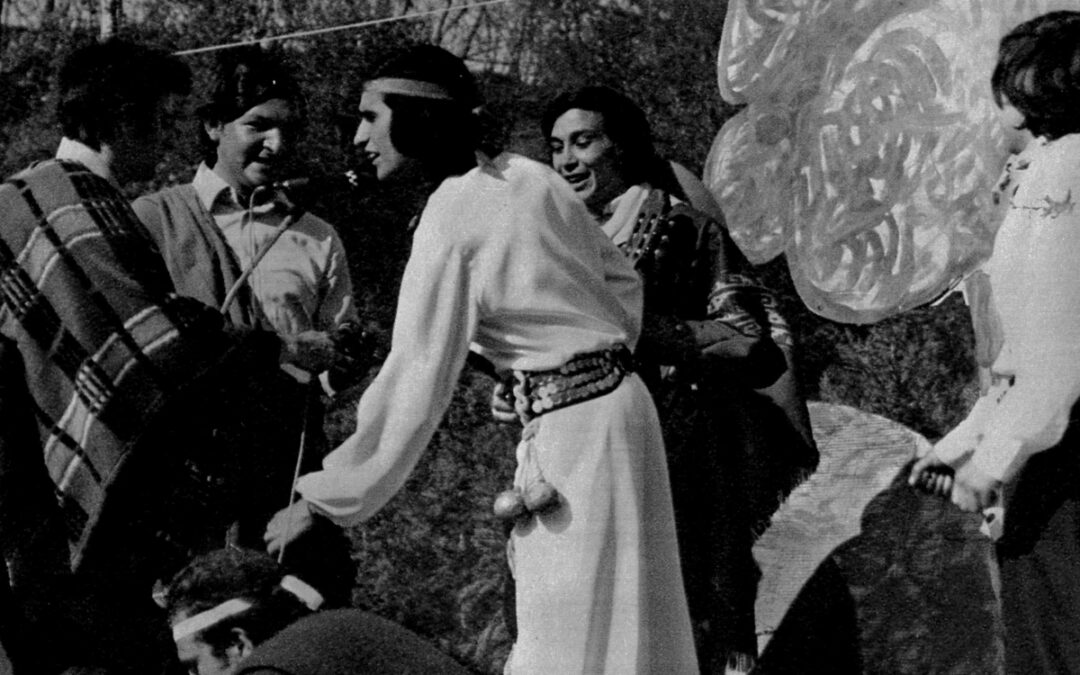
Oct 24, 2017 | Non categorizzato
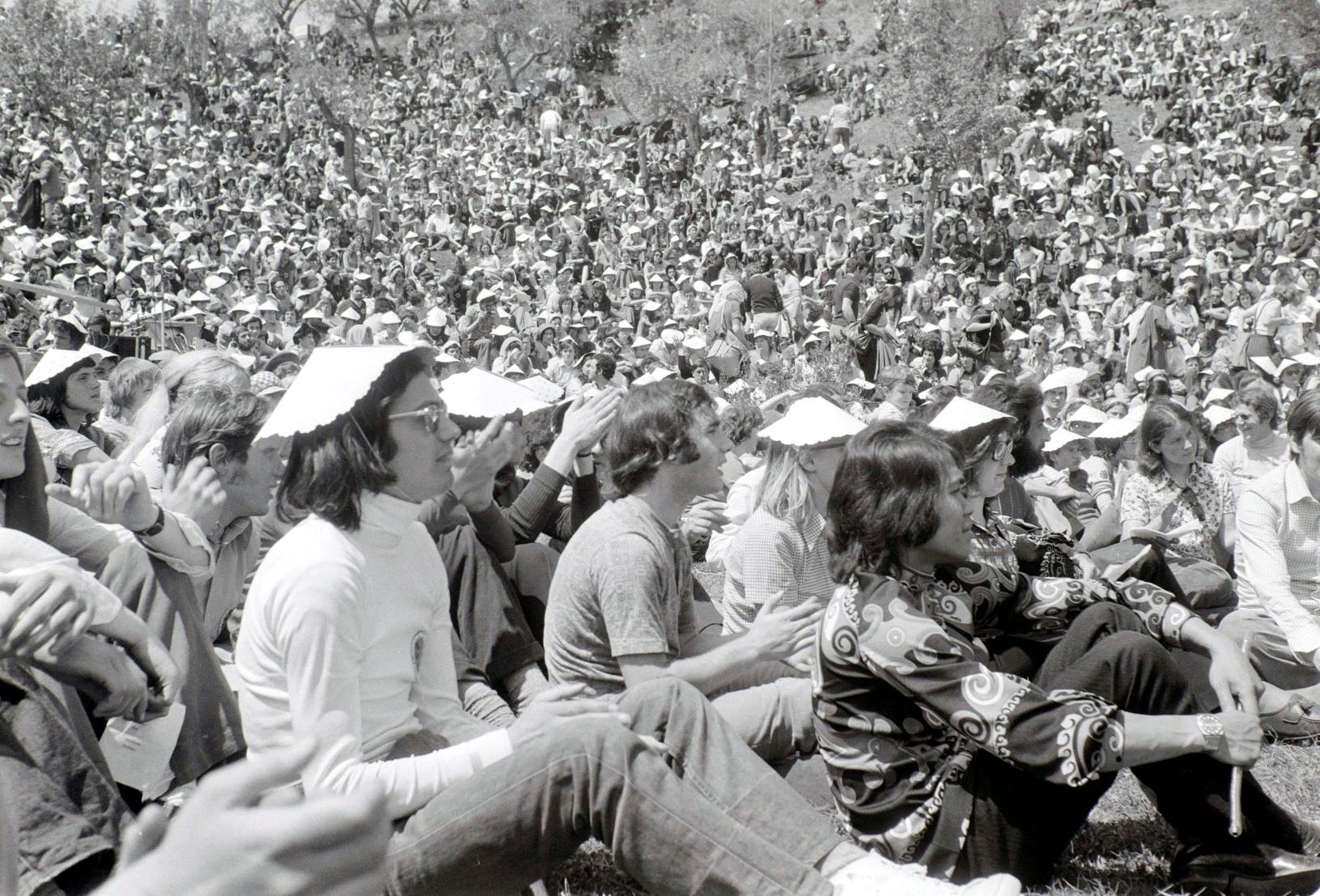 An unending line of buses filled with young people clamoured up the narrow roads that rose from Incisa Valdarno, Italy, to Loppiano. Such a long carcade hadn’t been expected and threatened to throw off the plans. Who would have expected 10,000 young people to come for what would then turn into a yearly event in many cities of the world? It was a real invasion that made all the jaws of Loppiano’s citizens drop. It began on a day of spring sunshine that burst from hearts and faces after a vigil of wind and rain: the first Genfest in history! And I was there! Yes, I was there! “Vivir para cantarlo,” García Márquez would say. “I live to sing it!” I can still see Loppiano’s natural amphitheatre in front of me, filled to the brim with young people from Italy and several other European countries, many hours of travel behind them – and also representatives from other countries around the world: like me from Argentina.
An unending line of buses filled with young people clamoured up the narrow roads that rose from Incisa Valdarno, Italy, to Loppiano. Such a long carcade hadn’t been expected and threatened to throw off the plans. Who would have expected 10,000 young people to come for what would then turn into a yearly event in many cities of the world? It was a real invasion that made all the jaws of Loppiano’s citizens drop. It began on a day of spring sunshine that burst from hearts and faces after a vigil of wind and rain: the first Genfest in history! And I was there! Yes, I was there! “Vivir para cantarlo,” García Márquez would say. “I live to sing it!” I can still see Loppiano’s natural amphitheatre in front of me, filled to the brim with young people from Italy and several other European countries, many hours of travel behind them – and also representatives from other countries around the world: like me from Argentina.
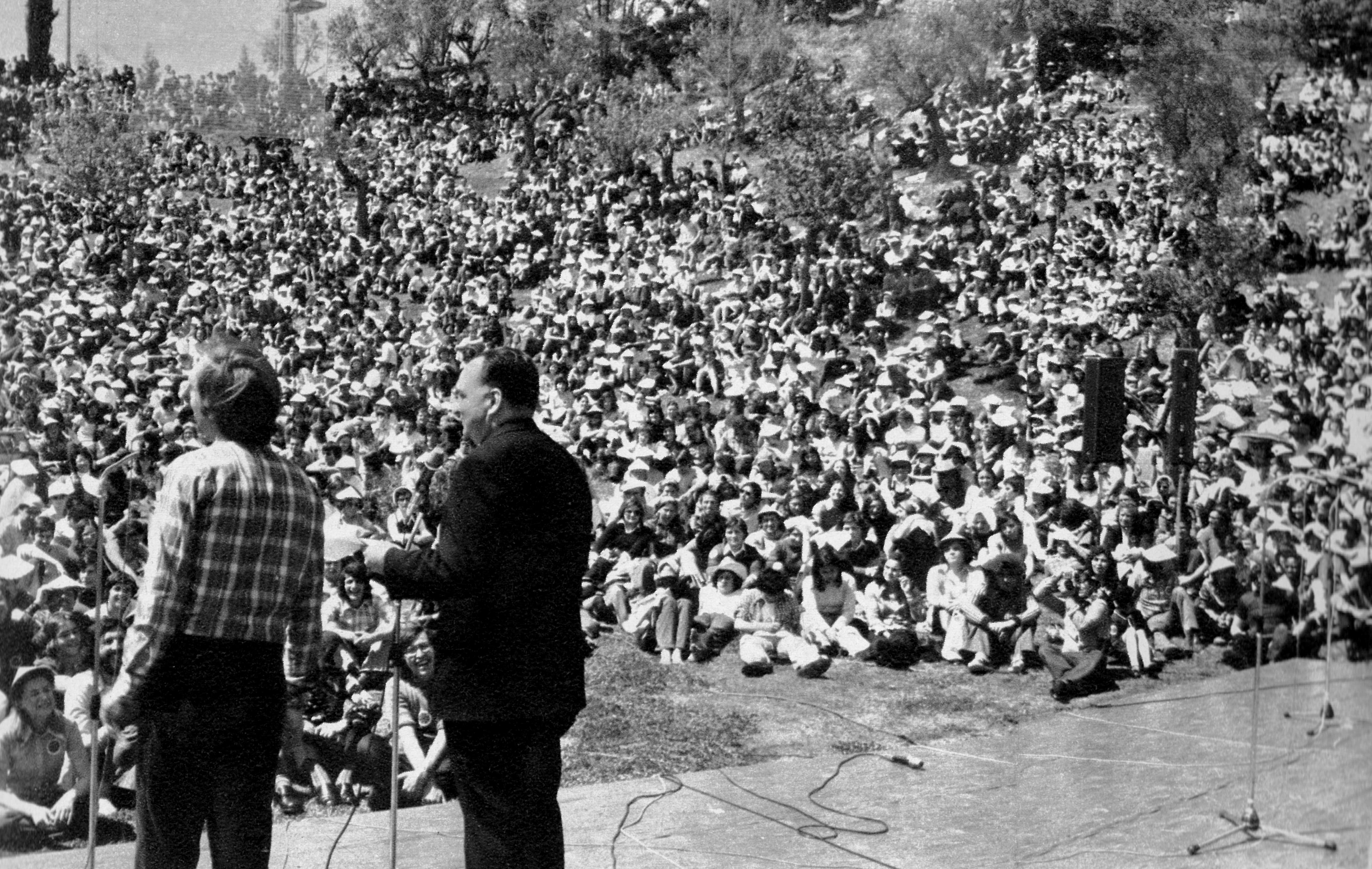
Fr Pasquale Foresi delivered a message from Pope Paul VI
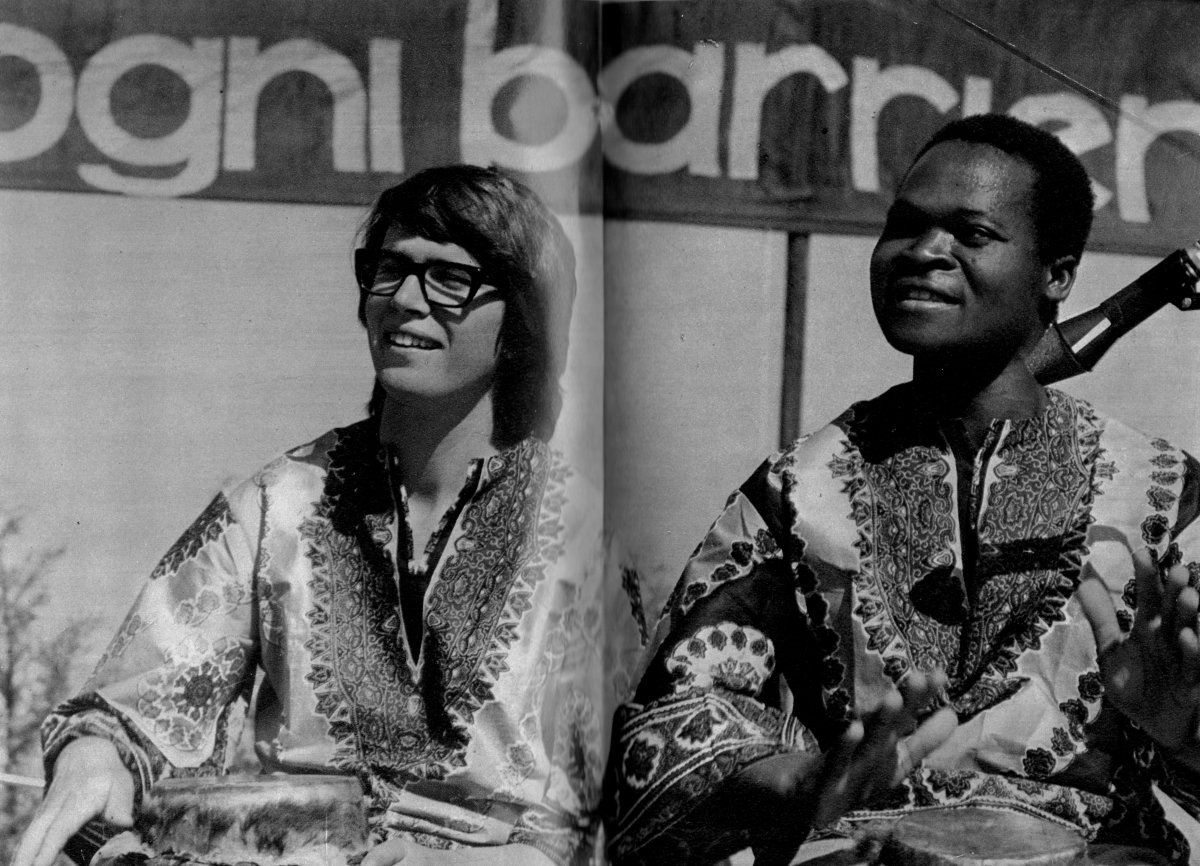
Participants from South Africa
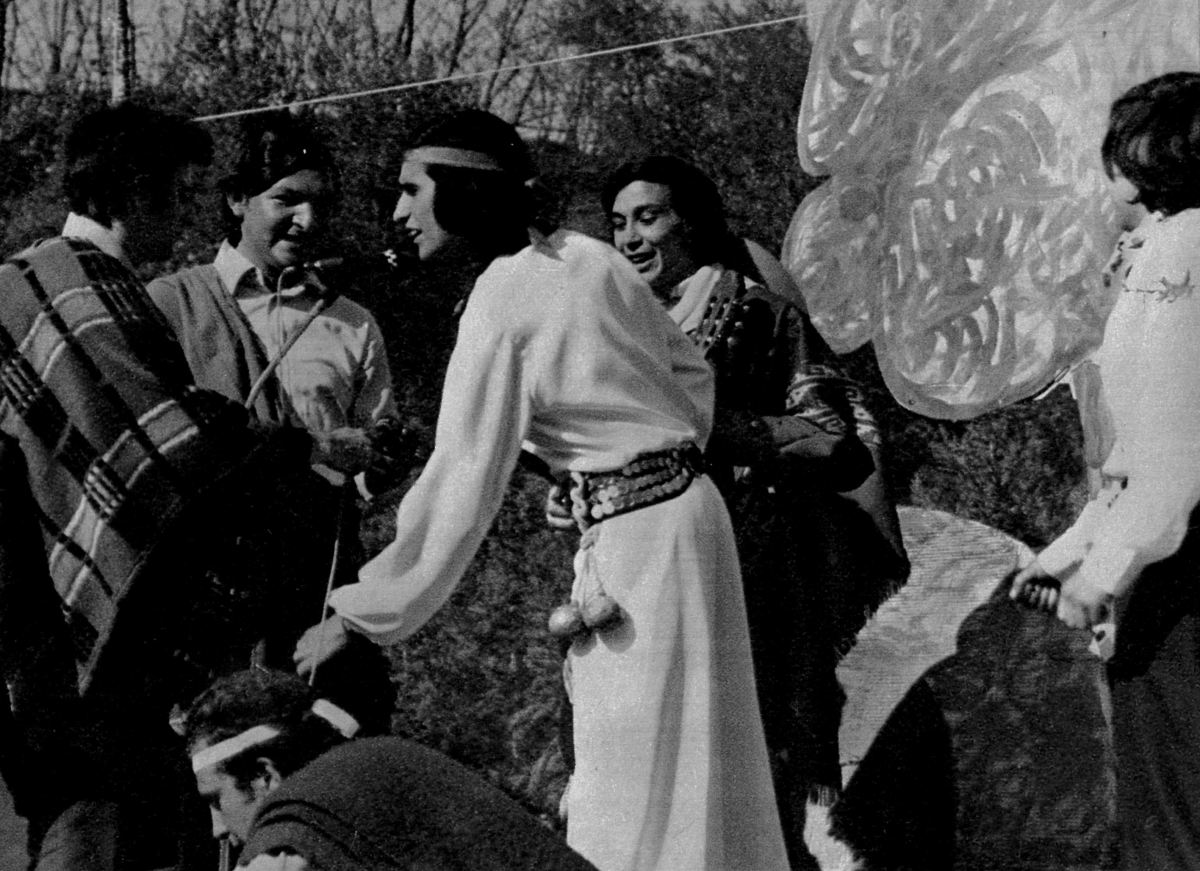
The group from Argentina
Gustavo Clariá
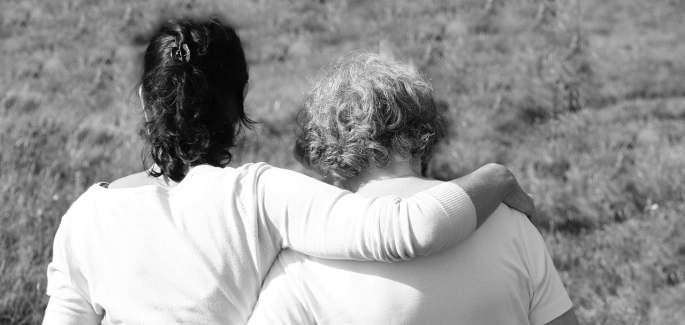
Oct 23, 2017 | Non categorizzato
 My return “My father passed away when I was 14. My mother, who was much younger than he was, gave us children much grief. She was often out with friends drinking, and she eventually left us for someone who divided his time between her and another family. After my siblings married, I found myself living alone, blaming my mother for all my pain. I could not forgive her. Yet I still called myself a Christian. I thought about the fact that she could not give me something she had not received herself. I realised it was up to me, since I had received the grace of the Gospel, to take the first step. It was a slow process. I started by calling her every so often, visiting her with small gifts and praying for her. Once I had felt like a victim of circumstances, but now I discovered that true happiness lies in loving without expecting anything in return. Even my relationship with her partner became more and more peaceful, and I try not to judge. Now I am the bridge between my siblings and my mother, and I’m sure that little by little they will come back to her.” (Alenne, Brazil) The cup of tea “I was in a cafe’ when I noticed an elderly lady asking for a cup of tea. She was quite poor, and the owner, thinking that she wouldn’t be able to pay, refused to serve her. I didn’t have much change in my pocket, but it would have been enough. I thought it was what Jesus would have done, so I said to the owner, “Give her the tea, I’ll pay.” To my surprise he answered: “That wouldn’t be fair. Your generosity helped me understand that it is much simpler for me, as the owner here, to offer it to her.” Taking the first step was all that was needed!” (John Paul, Pakistan) A hundredfold of love “For a number of years I’ve been working at a rehabilitation center, mostly with young people who, despite their vulnerability and suffering, are fighting to get back to a normal life. We work together in the kitchen each Thursday to prepare lunch. I thought I was being useful for them, but instead I’ve experienced that the love I give always comes back hundredfold. I understood that if we make an effort to welcome others as they are, with their weaknesses and painful histories, as Jesus would with a merciful eye, we can experience hope for a more peaceful future.” (Graziella, Italy) Forgetting my shortcomings “When I speak in public, my hands shake and my head gets a bit foggy. I tried to accept this and instead try to do something tangible for others. I started with small gestures, like helping my mother with the housework, or my siblings with their homework. Or I call my grandmother, who lives alone, and I go to visit her, bringing her some flowers or something sweet. At university I try to give a hand to those who are not as successful with exams. By doing this, my life didn’t just change, but I practically forgot all about my shortcomings.” (M., Germany)
My return “My father passed away when I was 14. My mother, who was much younger than he was, gave us children much grief. She was often out with friends drinking, and she eventually left us for someone who divided his time between her and another family. After my siblings married, I found myself living alone, blaming my mother for all my pain. I could not forgive her. Yet I still called myself a Christian. I thought about the fact that she could not give me something she had not received herself. I realised it was up to me, since I had received the grace of the Gospel, to take the first step. It was a slow process. I started by calling her every so often, visiting her with small gifts and praying for her. Once I had felt like a victim of circumstances, but now I discovered that true happiness lies in loving without expecting anything in return. Even my relationship with her partner became more and more peaceful, and I try not to judge. Now I am the bridge between my siblings and my mother, and I’m sure that little by little they will come back to her.” (Alenne, Brazil) The cup of tea “I was in a cafe’ when I noticed an elderly lady asking for a cup of tea. She was quite poor, and the owner, thinking that she wouldn’t be able to pay, refused to serve her. I didn’t have much change in my pocket, but it would have been enough. I thought it was what Jesus would have done, so I said to the owner, “Give her the tea, I’ll pay.” To my surprise he answered: “That wouldn’t be fair. Your generosity helped me understand that it is much simpler for me, as the owner here, to offer it to her.” Taking the first step was all that was needed!” (John Paul, Pakistan) A hundredfold of love “For a number of years I’ve been working at a rehabilitation center, mostly with young people who, despite their vulnerability and suffering, are fighting to get back to a normal life. We work together in the kitchen each Thursday to prepare lunch. I thought I was being useful for them, but instead I’ve experienced that the love I give always comes back hundredfold. I understood that if we make an effort to welcome others as they are, with their weaknesses and painful histories, as Jesus would with a merciful eye, we can experience hope for a more peaceful future.” (Graziella, Italy) Forgetting my shortcomings “When I speak in public, my hands shake and my head gets a bit foggy. I tried to accept this and instead try to do something tangible for others. I started with small gestures, like helping my mother with the housework, or my siblings with their homework. Or I call my grandmother, who lives alone, and I go to visit her, bringing her some flowers or something sweet. At university I try to give a hand to those who are not as successful with exams. By doing this, my life didn’t just change, but I practically forgot all about my shortcomings.” (M., Germany)

 As processes of isolation increase around the world, Sophia University Institute opens a courageous new Centre for Global Studies which will “provide tools for understanding, managing and changing processes of global relations,” explained Pasquale Ferrara, Italian Ambassador to Algeria and president of the new Centre. “The new centre is the result of ten years of academic experience, and its goal is the training of a new generation of leaders that is capable of facing the complexity, and motivated to work for dialogue and peace.” “No country, no group can allow itself to become isolated from the other,” said Paolo Frizzi, professor of Religions and Global Processes, and Director of the Centre. “We are in the middle of an uncertain passage, which is transient and happening on many levels.
As processes of isolation increase around the world, Sophia University Institute opens a courageous new Centre for Global Studies which will “provide tools for understanding, managing and changing processes of global relations,” explained Pasquale Ferrara, Italian Ambassador to Algeria and president of the new Centre. “The new centre is the result of ten years of academic experience, and its goal is the training of a new generation of leaders that is capable of facing the complexity, and motivated to work for dialogue and peace.” “No country, no group can allow itself to become isolated from the other,” said Paolo Frizzi, professor of Religions and Global Processes, and Director of the Centre. “We are in the middle of an uncertain passage, which is transient and happening on many levels.  Sophia Institute, the result of Chiara Lubich’s intuition, has tripled its offerings this year: Master Degree in Economics and Management, Trinitarian Ontology and Culture of Unity, with their respective doctorates. President Msgr Piero Coda explains: “The complex nature of the national and global horizon requires a relentless effort oriented towards the unity of the human family guided by a new thought. In these ten years, Sophia has grown into an Intercultural, inter and trans-disciplinary centre where an integral relationship is nurtured among study, experience and research.”
Sophia Institute, the result of Chiara Lubich’s intuition, has tripled its offerings this year: Master Degree in Economics and Management, Trinitarian Ontology and Culture of Unity, with their respective doctorates. President Msgr Piero Coda explains: “The complex nature of the national and global horizon requires a relentless effort oriented towards the unity of the human family guided by a new thought. In these ten years, Sophia has grown into an Intercultural, inter and trans-disciplinary centre where an integral relationship is nurtured among study, experience and research.” 











